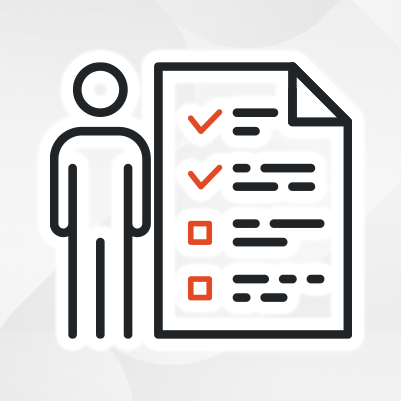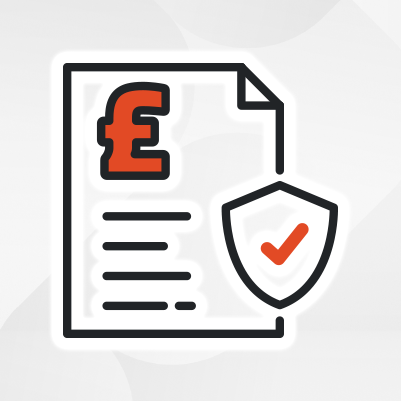
Have you thought about your future?
Whatever your age, it’s never to early too plan and protect your future and your loved ones.
Talking about things like life insurance, wills and financial planning can feel uncomfortable, but it’s an important conversation to have. While it can be tough to think about the “what-ifs” in life, being prepared can provide peace of mind for both you and your loved ones.
By discussing these matters openly, you’re taking steps to ensure that your family or loved ones are well looked after, should something unexpected happen. It can also help prevent stress or confusion during what could already be a difficult time. Plus, being proactive about your financial planning allows you to make sure your wishes are followed and that your family doesn’t face any unnecessary burdens.
This could include practical things like making a will, appointing a power of attorney, pensions, life insurance and physical things like keeping active or protecting your knees and back whilst at work.
Here we offer you practical solutions to protect yourself and your loved ones no matter what the future holds.
Make a will
You are never too young to write a will and it’s one of the best ways to safeguard your family’s finances for years to come. If you die without making a will your money, property and possessions will be allocated according to the rules of intestacy, which may not reflect your wishes.
By writing a will, you can ensure that your assets are allocated as per your wishes. You can make an inventory of your financial assets, such as bank accounts and life insurance policies, so that your executors know where to locate these after you’ve passed away. You could also consider writing a letter of wishes; however, this isn’t legally binding but can advise your loved ones on how you’d like your money to be allocated after you’ve passed away.
You may wish to name a legal guardian in your will, which means you can name someone to look after any child(ren) under the age of 18. You may not know that grandparents, siblings and stepparents have no automatic legal responsibility for a child, so by having clear legal instructions on what should happen if you were no longer around ensures that your wishes are upheld.
Legal guardian responsibilities include many aspects of life that come at a financial cost, including providing a home, eating and nutrition, and financial support as required.
If you haven’t already got a will, you can get a free one done through the EIC in March and October. Contact us today.

Appoint a Power of Attorney
A Power of Attorney (POA) allows someone (the “attorney”) to make decisions for you when you’re unable to do so yourself, either due to illness, incapacity, or absence. A Lasting Power of Attorney (LPA) is specifically designed to remain in effect if you lose mental capacity. There are typically two types of LPA:
- Health and Welfare LPA – Allows the attorney to make decisions about your care, medical treatment, and living arrangements.
- Property and Financial Affairs LPA – Gives the attorney authority over financial matters such as managing bank accounts, paying bills, and handling property transactions.
To create an LPA, the person granting the power must have the mental capacity to understand the decisions they’re making at the time of signing. It’s also important to choose someone you trust to act in your best interests, and in many places, it requires registering the document with a government office to make it legally binding.

Life insurance
Life insurance is a vital component of financial security. In the unfortunate event of a policyholder’s death, it provides a lump sum payment to beneficiaries that can cover funeral expenses, replace lost income, and settle outstanding debts, including mortgages, car loans and credit cards. This protection is especially important for those with young children, homeowners with mortgages and business owners who wish to leave a lasting financial legacy.
Life insurance ensures your dependents are financially secure, allowing your family to maintain their standard of living during a challenging time, and alleviating the burden of financial concerns as they navigate their grief.
Life Insurance is usually something that people save for tomorrow, but anything can happen that can have a negative impact on your premiums or level of cover, such as your age, financial situation, illness, or accidents. The sooner you have appropriate cover in place, the more secure you will feel and the more control you will have.
According to the Association of British Insurers (ABI), the UK protection insurance market paid out an impressive total of £5.7 billion in claims in 2019, which included £1.6 billion for critical illness cover and £2.1 billion for life insurance.
Despite this, research from Royal London reveals that only 35% of UK adults have life insurance, leaving a significant number of individuals and families financially exposed in the face of a serious illness or untimely death.
If you’re interested in exploring your life insurance options, our Financial Planner, Anna Gooch*, is available to review your needs and help you find the right insurance provider for your situation. Don’t wait until it’s too late—take the first step towards securing your loved ones’ financial future today.
*Anna Gooch Financial Planning is an Appointed Representative of and represents only St. James’s Place Wealth Management Plc (which is authorised and regulated by the Financial Conduct Authority) for the purpose of advising solely on the Group’s wealth management products and services, more details of which are set out on the Group’s website at www.sjp.co.uk/products.
The ‘St. James’s Place Partnership’ and the titles ‘Partner’ and ‘Partner Practice’ are marketing terms used to describe St. James’s Place

Gift money to your family
You can gift up to £3,000 a year tax-free without paying Inheritance Tax (IHT), which is known as your annual exemption. This could be a gift your grandchildren, children or another person. You can carry your exemption over to the next year if you don’t use your full exemption in one tax year, meaning you can gift up to £6,000 tax-free in a two-year period. You don’t pay any tax on gifts you make to a spouse or civil partner if they’re UK-based.
It’s important to note that if gift money or assets and then pass away within 7 years of making the gift. The value may still be more included in your estate for IHT purposes and could be subject to IHT. However, there are taper relief rules that reduce the amount of tax payable on gifts made 3-7 years before death.

Keep your key documents safe
Make sure that your loved ones know where your documents are, such as a will and life insurance. If they need to make a claim on a life insurance policy or get key information on your finances, this knowledge will make it much easier. You could store these documents in filing cabinets, a home safe, public safety deposit box or even online using cloud storage – just make sure they know any relevant passwords.

Looking after yourself
It’s important to look after yourself to ensure that you’re healthy in later life. This can be both physical and mental wellbeing.
It may not come as a surprise to people working in the trades that the health and safety risk level attached to your job is higher than the average job. It’s not just the hazards you may come across on site, such as slip, trips and falls but also long-term effects of the physical demands of the job. You may experience repetitive stress injuries (RSI), issues with your back, joints, knees or muscles or even hearing issues and eye strain.
Managing risks early can help prevent chronic conditions and ensure a longer, healthier career. Here’s some simple things to be aware of and how you can protect yourself:
- Electrical-Related Health Risks
- Electric shocks & burns – Even low-voltage shocks can cause long-term nerve damage. Always use voltage testers before touching wires and wear insulated gloves when necessary.
- Exposure to electromagnetic fields (EMFs) – While research is ongoing, long-term exposure to high EMFs from electrical panels and transformers may have potential health effects. Limit unnecessary exposure and take breaks from high-EMF areas.
- Musculoskeletal Disorders (MSDs)
Electricians frequently suffer from:
- Back and joint pain – Repetitive bending, kneeling, and awkward positions can cause long-term joint issues. Use knee pads, adjust work positions, and strengthen your core muscles.
- Hand and wrist strain – Constant use of screwdrivers, pliers, and cable cutters can cause conditions like carpal tunnel syndrome. Take regular breaks, use ergonomically designed tools, and do hand stretches.
- Shoulder injuries – Repeated overhead work (e.g., installing lighting) can lead to rotator cuff issues. Use ladders or scaffolding properly instead of overreaching.
- Hearing Loss
- Using power tools like drills, saws, and breakers over time can lead to noise-induced hearing loss.
- Wear ear defenders or earplugs in noisy environments to protect your hearing.
- Respiratory Issues
- Dust from drilling walls and chasing cables can lead to lung problems over time.
- Exposure to asbestos in older homes is a serious health risk. If you suspect asbestos, stop work immediately and report it.
- Use a high-quality dust mask (FFP3 rated) when working in dusty environments.
- Vision Strain & Eye Protection
- Staring at bright lights (e.g., testing circuits, installing LEDs) can cause eye strain and long-term damage. Wear safety glasses with UV protection.
- Protect against debris or sparks when cutting, drilling, or working near consumer units.
- Hand-Arm Vibration Syndrome (HAVS)
- Using power tools for long periods (especially drills, saws, and breakers) can lead to HAVS, causing numbness, tingling, and even permanent damage.
- Limit exposure to vibrating tools by taking breaks and using anti-vibration gloves.
- Mental Health & Work-Life Balance
- Stress from demanding schedules, deadlines, and physically tough work can lead to burnout.
- Managing clients, paperwork (certifications, Part P compliance), and unexpected issues can add pressure.
- Prioritise regular breaks, healthy eating, hydration, and exercise to maintain physical and mental well-being.
- The EIC can help if you are facing challenging times; maybe you feel isolated or are experiencing stress or anxiety. You can access assistance in the following ways:
- Complete our online form (QR code and link)
- Email support@electricalcharity.org
- Call on 0800 652 1618 (Mon-Fri, 9am – 5pm)
- Long-Term Career Adaptations
- As you get older, you may want to transition into less physically demanding roles like inspections (EICRs), consulting, training, or smart home installations.
- Staying updated on new technologies (solar PV, EV chargers, home automation) can help extend your career in a less labour-intensive direction.
By proactively managing these risks, you can ensure a longer, healthier career as an electrician.
Taking steps to safeguard your future isn’t just about preparing for the unexpected; it’s about empowering yourself and your loved ones with security and peace of mind. Whether it’s making a will, appointing a Power of Attorney, or securing life insurance, these proactive measures ensure your wishes are honored and your family is protected. Don’t wait—start planning today to build a resilient future for you and those you care about most.



